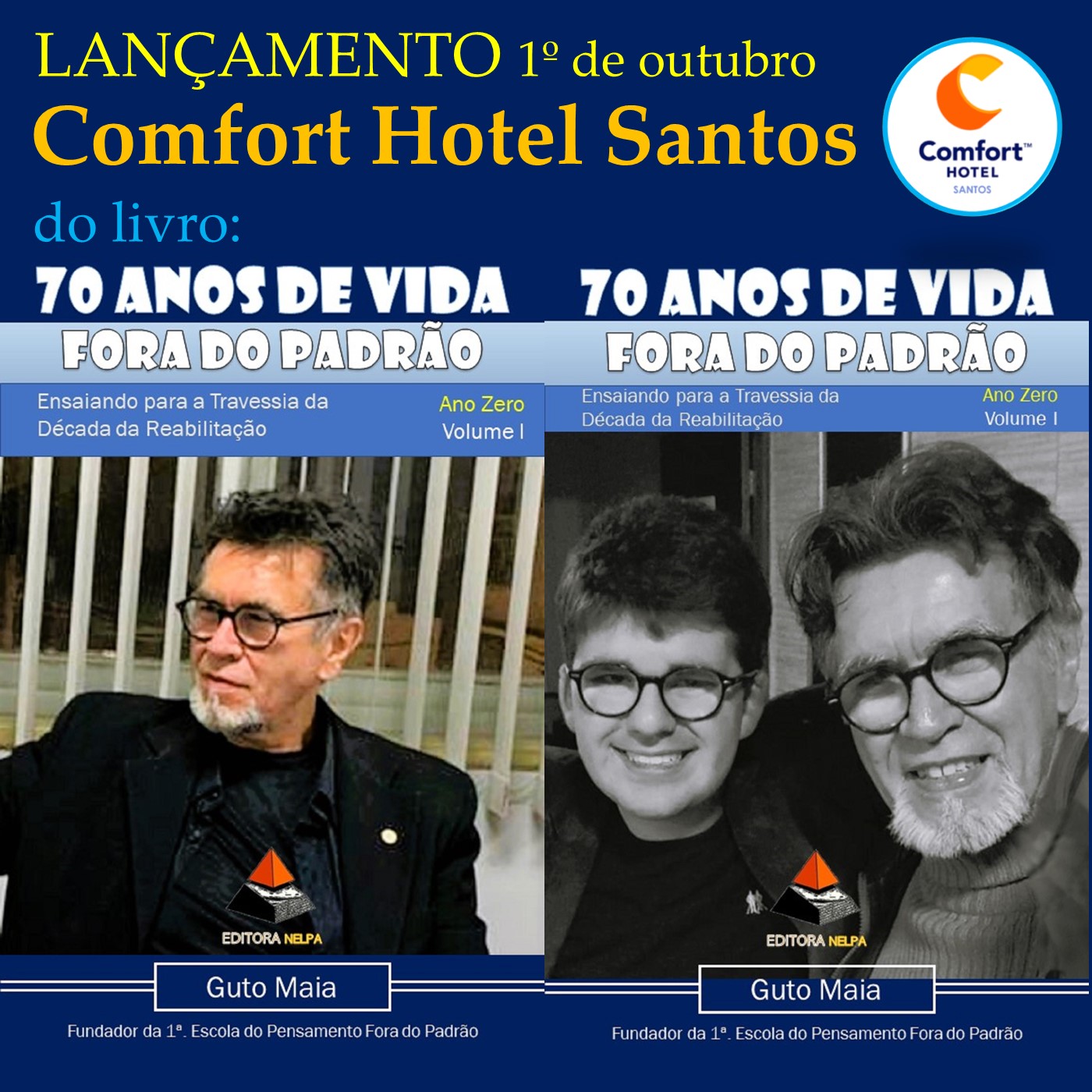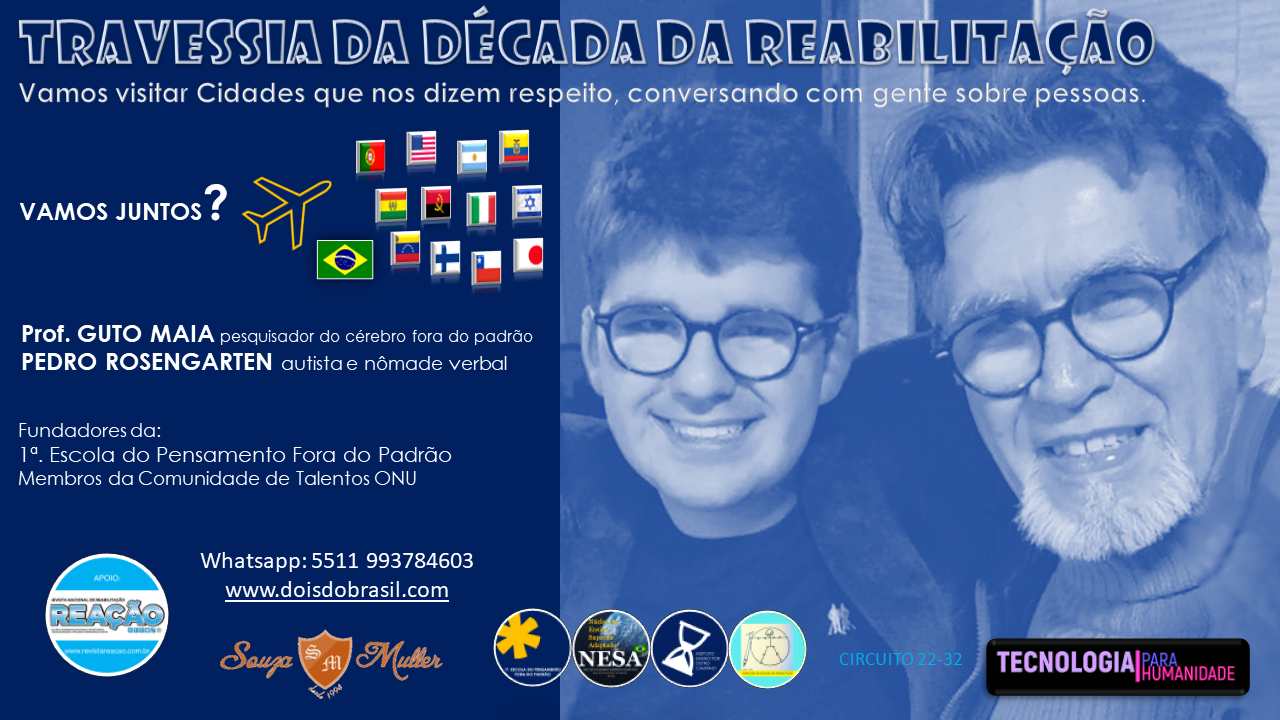|
TEXTO 1 Bom dia! Para nos habituarmos rapidamente com a língua inglesa, crie textos em inglês, com ajuda do Google Tradutor, o que vai também ajudar a pensar em inglês, usando a neurociência cognitiva e gestão do tempo, que é o fator de aprendizado mais rápido. Você pode dedicar 30 minutos diários, apenas, para estudar inglês, com estas técnicas simples. Os COGNATOS, que são padrões de associação lógica imagéticas, e todos os fatores cerebrais mnemônicos necessários para que estejamos fluentes em 3 meses. Até outubro ou antes, conversaremos fluentemente com nativos americanos. essa é a proposta. Fluência é, simplesmente, comunicar-se adequadamente, se fazer entender e desenvolver um diálogo com segurança. POR QUE SER PROFESSOR É TÃO IMPORTANTE E POR QUE ENSINAR AOS OUTROS FAZ TÃO BEM PARA O CÉREBRO? RESPOSTA: Porque é a atividade que melhor e mais rapidamente promove a capacidade e aproveitamento cerebral! Neurocientificamente, o CÉREBRO APRENDE: 10%, lendo; 20%, ouvindo; 30%, observando; 50%, vendo e ouvindo; 70%, discutindo; 80%, fazendo; e 95%, ensinando aos outros. |
|
TEXTO 3 Para iniciar, na prática, o domínio da fluência na conversação, sugiro que você coloque no Google Tradutor, estes textos, e ouça-o em inglês à exaustão para familiarizar-se com as palavras que você não domina, anotando-as num caderno ou no celular. Pode haver alguma incorreção nesse momento, mas sem estresse, é só um aquecimento e um fator que vai alimentar as nossas conversas futuras. Fluência é, simplesmente, entender o que nativos estão falando, sem que eles precisem falar devagar ou se comunicarem com você por mímica para que você os entenda. Fluência e conseguir comunicar e entender o que interessa no momento, só isso. Senão, quase nenhum brasileiro seria fluente nem em português! Vamos começar por 4 REGRAS básicas:
Anote todas as palavras que você não domina.
ESTA É A SEMANA 1/13 (DIA 18 a 24/07) Bons estudos! TEXT 3 To start, in practice, the domain of fluency in conversation, I suggest that you put these texts in Google Translate, and listen to them in English to exhaustion to familiarize yourself with the words that you do not know, writing them down in a notebook or on the cellphone. There may be some inaccuracies at this point, but no stress, it's just a warm-up and a factor that will fuel our future conversations. Fluency is, quite simply, understanding what natives are talking about, without them needing to speak slowly or communicate with you by mime for you to understand them. Fluency and being able to communicate and understand what matters at the moment, that's all. Otherwise, almost no Brazilian would be fluent even in Portuguese! Let's start with 4 basic RULES: 1. FORGET THE GRAMMAR. Never worry about anything that oppresses or is limiting. Have fun studying English. Our fluency will come from communicating like a child. We now have 10 YEARS OLD to learn any language. A child communicates well, grammatically correct, depending on the parents he has and the environment where he lives, but he does not know grammatical rules. 2. LISTEN, LISTEN, LISTEN with pleasure. As children, we learn by listening. We learn from our parents by listening to them. Nobody needs to know grammar before learning the language. So forget about grammar. Learn to listen and reproduce what you hear, without worrying about error. Osmosis happens naturally. Develop ACTIVE LISTENING. 3. WATCH SHORT AND EASY STORIES daily and memorize each story. Write down all the words you don't know. 4. TEACH. Teach others what you want or need to learn (this is the biggest secret of all!). When you don't selfishly withhold knowledge for yourself, it multiplies. This, instead of being altruism, is a factor of great selfishness, insofar as you are the greatest beneficiary of what you give of knowledge to others. This is a self-esteem factor. We'll work intensively for 13 weeks (90 days), daily for at least 30 minutes, and we'll set up a meeting with native English speakers to demonstrate that this works, okay? Good studies! It will be fascinating!!! THIS IS WEEK 1/13 (DAY 18 to 24/07) Good studies!
AULA 1: Para assistir: https://www.youtube.com/watch?v=Z6JyVsm3X64 https://www.youtube.com/watch?v=VjPK7JDjLr8
COGNATOS – padrão de associação lógica por imagens mentais NEUROCIÊNCIA COGNITIVA – compreensão intuitiva CONEXÕES NEURAIS sinapses HISTÓRIAS INTERATIVAS – histórias simples AUDIÇÃO BIÔNICA – escuta ativa |
|
1a. Escola do Pensamento Fora do Padrão Prof. Guto Maia (José Augusto Maia Baptista) (Linktree: https://linktr.ee/prof.gutomaia) ID Pesquisador ORCID: https://orcid.org/0000-0002-5694-4460 Pedro Rosengarten Baptista (Linktree: https://linktr.ee/pedrorosengartenbaptista) ID Pesquisador ORCID: https://orcid.org/0000-0003-3394-8634 Membros Comunidade de Talentos ONU |
-
>
Projeto Científico-Social
- > Idealizadores
- > MARCAS
- > 1o. Congresso Internacional Cérebro Fora do Padrão
- > ODS/ONU
- > Grandes histórias de vida
- > Carnaval22
- > Case de Sucesso
- > Seminário Camandudaia
- > Portfólio
- > Semana
- > Congresso
- > O que se fala de Guto Maia
- > Contato
- > Pedro Rosengarten Baptista
- > África, um olhar
- > Guto Maia
- > na web
- > Dicionário de Rimas
- > Digestivo Cultural
- > Overmundo
- > Pensador
- > Currículo Detalhado
- > Curriculo Resumido
-
>
Líderes Mundiais
- > Mulheres Fortes
- > Conselho de Notáveis
- > Pessoas-Símbolos
- > Mães Atípicas
- > Universo Investidor
- > Museu da Inclusão
- > Secretaria Nacional Deficiência
- > Direitos Autorais x Indenização Moral
- > Psicologia da Educação
- > Lei 13146-15
- > Justiça e Política Educacional
- > Leis do Autismo
- > Direitos do Autista
- > Ensino Por Outro Caminho
- > Banners-Frases
- > Revista/TV Reação
- > Missão Educar




